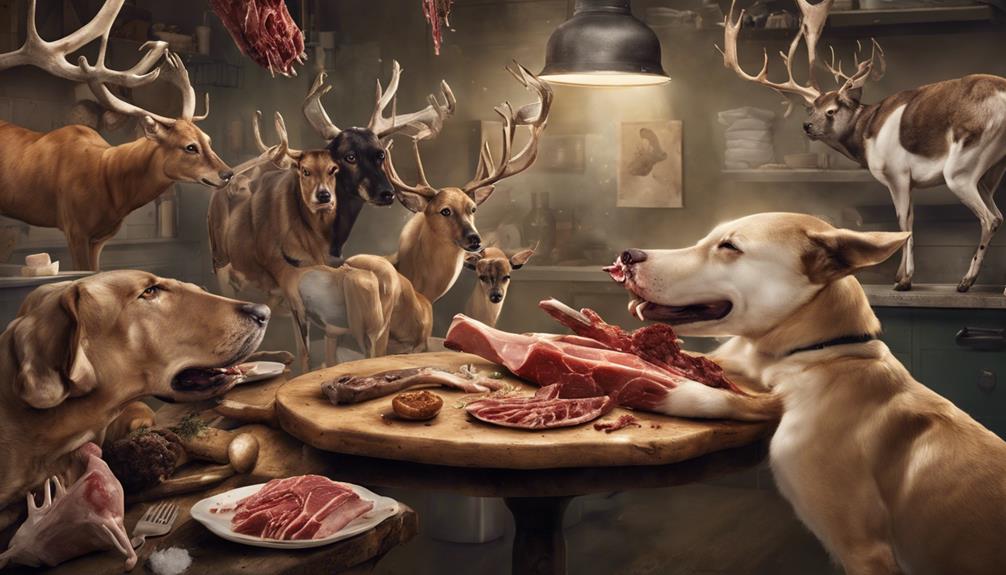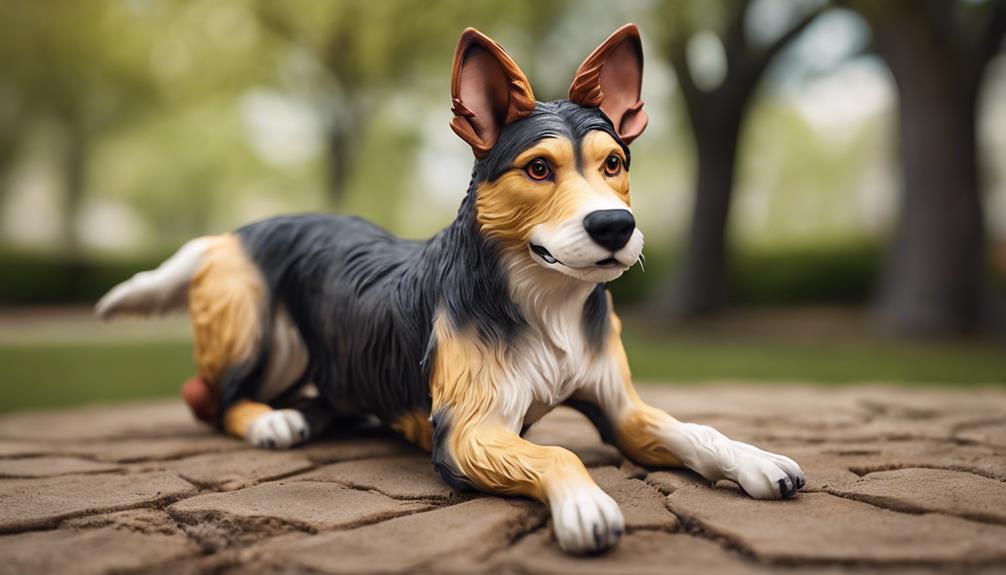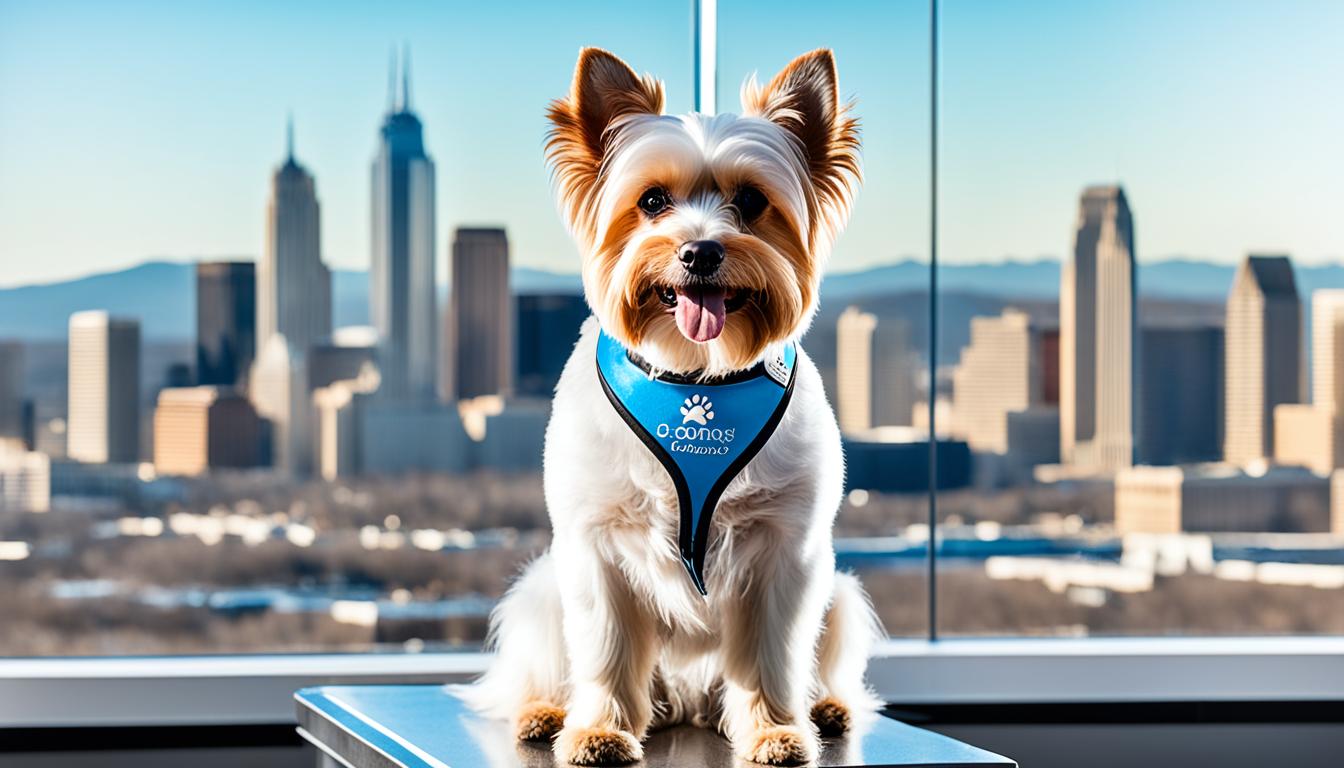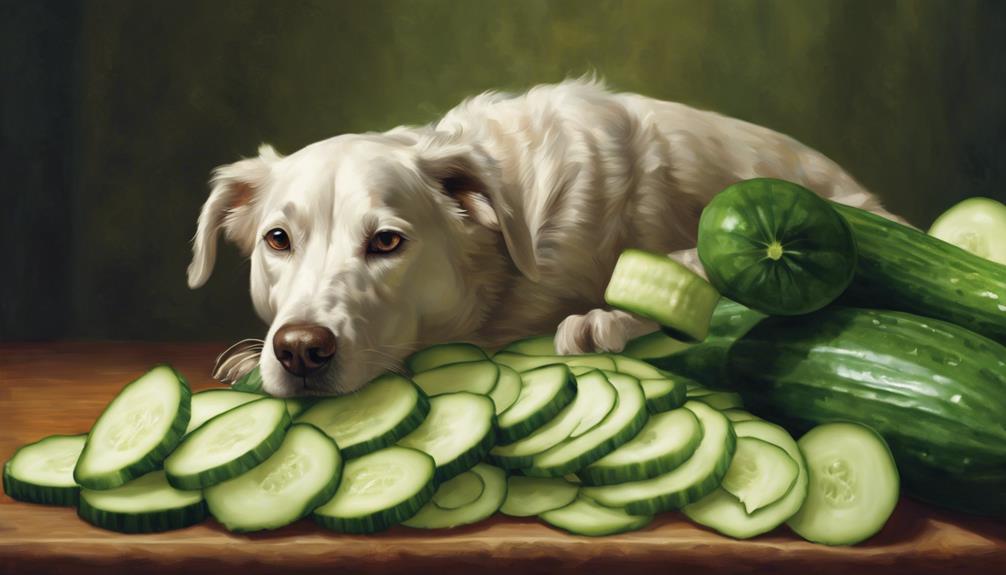When it comes to feeding our furry friends deer meat, understanding the benefits as well as the risks is crucial. Deer meat provides lean proteins and essential nutrients that are important for your dog’s health, but there are also potential dangers such as harmful pathogens and parasites. Properly cooking the meat is essential to ensure any risks are eliminated, and it is important to handle, store, and prepare the meat safely. Monitoring portion sizes, sourcing high-quality deer meat, and seeking advice from a veterinarian for personalized guidance are all essential steps in maintaining the health of our dogs.
For more tips on ensuring a safe and balanced diet for your pet, check out the detailed guide above.
Key Takeaways
- Cook deer meat thoroughly to 160°F to kill harmful bacteria and parasites.
- Source farm-raised deer from reputable suppliers to ensure quality and safety.
- Monitor portion sizes according to dog's weight and energy needs.
- Store deer meat properly in the freezer at 0°F and thaw safely.
- Consult with a veterinarian for personalized feeding plans and dietary recommendations.
Benefits of Deer Meat for Dogs
Deer meat offers a lean and nutrient-rich protein source that can greatly benefit dogs' overall health and well-being. Venison, as a protein source, is lower in fat and cholesterol compared to other meats, making it a good choice for dogs. Additionally, it's a good source of omega-3 fatty acids, promoting coat, brain, and joint health in pets. Deer meat is rich in essential vitamins and minerals such as iron, vitamin B3, and vitamin B2, supporting red blood cell function, reducing inflammation, and aiding in antibody production in dogs.
Furthermore, including deer meat in a dog's diet can provide a crucial protein source, supporting weight management and ensuring a balanced nutrient intake for canine well-being. This raw meat option offers a distinctive flavor profile and can be a beneficial addition to a dog's diet, enhancing their overall health and vitality.
Potential Risks to Consider

Considering the potential risks associated with consuming raw deer meat, it's essential for dog owners to prioritize proper handling and thorough cooking methods to safeguard their pets' health. Raw deer meat can harbor dangerous pathogens such as E. coli and Salmonella, which pose serious health risks to dogs. Additionally, wild deer may carry diseases and parasites that can be transmitted to dogs through the consumption of raw meat.
Parasites like ticks, tapeworms, and flukes can be present in wild deer meat, further increasing the health risks for dogs. By cooking deer meat thoroughly, these harmful bacteria and parasites can be eliminated, reducing the likelihood of infections and illnesses in dogs. It's essential for dog owners to understand the potential risks associated with raw deer meat and take necessary precautions in handling, cooking, and ensuring the safety of their pets.
Proper storage, handling, and cooking techniques play an important role in mitigating these risks and ensuring the well-being of dogs.
Proper Storage and Preparation
To guarantee the safety and quality of raw deer meat for your dog's consumption, proper storage and preparation methods are essential. When handling raw deer meat, it's important to store it in the freezer at 0°F to prevent spoilage and bacterial growth. Thawing should be done in the refrigerator or under cold water to maintain food safety standards. Always remember to clean all surfaces and utensils that come into contact with raw deer meat to prevent cross-contamination and the spread of harmful bacteria.
Here is a helpful table outlining key steps for storing and preparing raw deer meat:
| Steps | Details | Importance |
|---|---|---|
| Store in Freezer | Keep at 0°F to prevent spoilage and bacterial growth | Essential |
| Thaw Properly | Thaw in the refrigerator or under cold water to maintain food safety standards | Crucial |
| Cook to 160°F | Make sure deer meat reaches an internal temperature of 160°F to kill harmful bacteria like E. coli and Salmonella | Essential |
Properly cooked deer meat not only eliminates risks but also provides your dog with essential protein sources and B vitamins for a balanced diet while ensuring food safety.
Recommended Portion Sizes

When determining how much deer meat to feed your dog, it's important to take into account their size and activity level for best portion sizes. Here are some essential points to keep in mind:
- Percentage of Body Weight: A general rule of thumb is to feed dogs 1-2% of their body weight in deer meat daily. This helps guarantee they receive adequate nutrients without overeating.
- Metabolism and Weight Management: Adjust portion sizes based on your dog's metabolism and weight management goals. Some dogs may require more or less food to maintain a healthy weight.
- Monitoring Weight and Energy Levels: Keep an eye on your dog's weight and energy levels to determine if portion sizes need to be adjusted. Changes in weight or energy could indicate the need for a dietary change.
- Veterinary Consultation: Consult with a veterinarian to establish a personalized feeding plan tailored to your dog's specific needs. This ensures your dog's diet includes the right balance of nutrients for peak health.
Feeding venison to your dog in appropriate portion sizes can provide essential proteins and nutritional benefits found in red meats, contributing to a well-rounded diet.
Sourcing Quality Deer Meat
We recommend securing reliable sources of deer meat to guarantee your dog receives a high-quality and safe food source. When obtaining deer meat for your dogs, choosing farm-raised deer from reputable suppliers is advisable. Farm-raised deer are typically nurtured in a controlled environment, reducing the risk of exposure to harmful substances or diseases.
Checking for certifications or standards met by the supplier is crucial to guarantee the quality and safety of the meat you're providing your furry companion. Avoid feeding dogs hunted deer meat as it may present potential risks and unknown factors that could jeopardize your pet's health.
Consulting with your veterinarian is also a prudent step to take when searching for high-quality deer meat sources. Veterinarians can offer suggestions based on your dog's specific dietary requirements and ensure that the deer meat you select is appropriate for your pet's consumption.
Prioritizing quality and sourcing from reputable outlets will help maintain your dog's health and happiness.
Frequently Asked Questions
Is It Safe for Dogs to Eat Deer Meat?
Absolutely, it's safe for dogs to munch on deer meat if it's prepared correctly. Cooking the meat first is essential to keep our furry friends healthy by eliminating any harmful bacteria.
While raw deer meat can provide more nutrients, we suggest playing it safe and cooking it. It's best to avoid feeding them hunted deer meat to prevent potential diseases. Remember to introduce deer meat gradually to watch out for any allergies.
Is It Better to Feed Dogs Raw or Cooked Venison?
When considering whether to feed dogs raw or cooked venison, it's generally safer to opt for cooked meat. Cooking venison helps eliminate harmful bacteria that could pose risks to our furry friends.
While raw venison may offer more nutrients, the safety of our dogs is paramount. Feeding them cooked venison can reduce the chances of foodborne illnesses and guarantee their well-being.
Is Venison Easily Digestible for Dogs?
Certainly, venison is readily digestible for dogs. Their digestive system processes venison protein effectively, making it a gentle option.
The quality of venison protein assists in digestion and absorption, decreasing the likelihood of upset stomachs. Compared to other meats, venison is an excellent choice for sensitive stomachs.
Its high digestibility guarantees that dogs can enjoy this lean and low-fat protein source without digestive issues.
What Parts of a Deer Can a Dog Eat Raw?
We can feed dogs raw deer muscle tissue, organs, and bones safely. It's crucial to source meat from healthy deer to reduce health risks. Avoid high-fat areas or potential contaminants.
Make sure the meat is fresh, properly handled, and free of parasites. Consulting a vet before feeding raw deer meat guarantees it meets your dog's nutritional needs.
Can Dogs Safely Consume Raw Meat, such as Deer Meat, as Part of Their Diet?
Many vets give vetapproved advice on raw sausages, advocating for dogs to consume raw meat, like deer meat, as part of their diet. However, it’s important to consult with a professional before making any dietary changes for your pet, as raw meat can pose health risks if not properly handled.
Conclusion
To sum up, providing your dog deer meat can be a nourishing and flavorful addition to their diet when done safely and in moderation. Just like with any new food, it's important to contemplate the benefits, risks, and proper preparation techniques.
For example, envision your furry companion savoring a lean, protein-rich venison stew on a chilly evening – a nutritious and satisfying meal that both you and your pup can feel good about.










